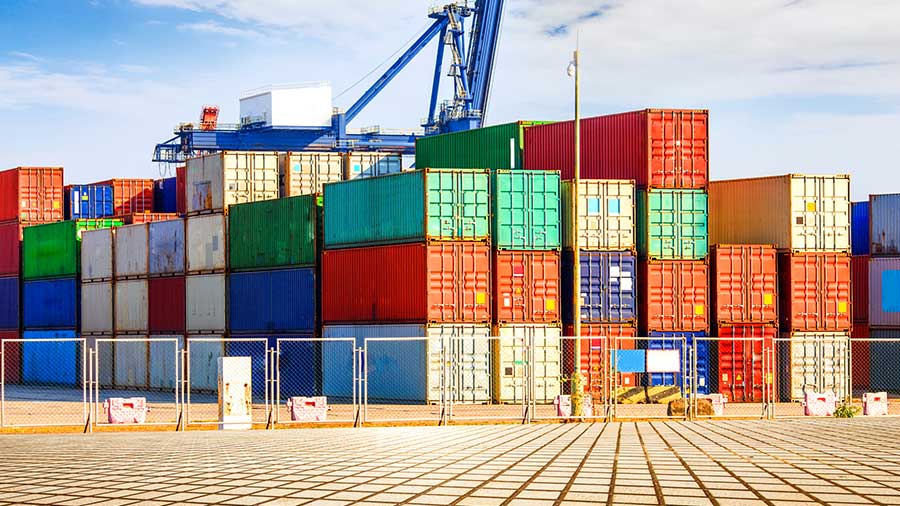What is a Transfer Pricing Review and Why Do Firms in Vietnam Need It?
A transfer pricing review provides details on the Vietnam firm’s transactions with associated enterprises and compliance with OECD norms. As tax jurisprudence and monitoring gets stricter in Vietnam, we discuss why foreign firms should prioritize transfer pricing reviews to avoid missteps in meeting transfer pricing obligations and have the necessary documentation in place for the perusal of tax authorities.
Tax laws and regulations in Vietnam undergo frequent changes, leading to potential difficulties in maintaining tax compliance. Non-compliance can result in significant financial risks. Considering this, foreign companies should consistently review their tax processes and procedures, including their transfer pricing (TP) transactions.
What is transfer pricing?
Transfer pricing is the act of minimizing a company’s tax liabilities through the sale of goods and provision of services internally from one subsidiary to another. Often, these transactions occur between distinct tax jurisdictions, commonly different countries.
While most transfer pricing agreements are lawful and valid, some companies have exploited this process, sometimes intentionally, sometimes unintentionally. This has typically involved selling goods between subsidiaries at inflated prices or significantly below market rates.
In Vietnam, the government has taken steps to prevent firms from crossing the boundary between responsible tax reduction and outright tax evasion. These are outlined in Decree 132/2020/ND-CP (Decree 132), issued in November 2020. The decree stipulates compliance and documentation requirements as well as stern penalities for violations.
For more details see: Transfer Pricing in Vietnam – An Overview
What is a transfer pricing review?
In essence, a transfer pricing review involves a tax expert assessing a company’s transfer pricing structures to verify their alignment with the stipulations of Decree 132.
In finer detail, this entails scrutinizing the company’s transfer pricing documentation to confirm comprehensive and accurate data compilation, along with precise calculations. Moreover, the review extends to evaluating organizational and supply chain modifications in light of Decree 132’s mandates.
Why do you need a transfer pricing review?
While initially, foreign companies in Vietnam promptly reviewed their transfer pricing practices to align with Decree 132 and ensure compliance, especially multinational entities (MNEs), there has been a growing trend of non-compliance among many firms over the past three years.
This non-compliance can stem from various factors, including alterations in tax regulations or shifts in a company’s business landscape—such as changes in size, operational scope, product range, or manufacturing types.
The impact of the pandemic has been particularly influential on transfer pricing setups. As the pandemic prompted swift supply chain adjustments due to border closures and port congestion, numerous companies scrambled to maintain production. Within this haste, it has become evident that several firms overlooked the necessity to review their transfer pricing strategies, potentially leading to costly consequences.
In case a company has overlooked the accurate re-evaluation of its transfer pricing obligations, swift rectification is essential to evade substantial financial penalties during potential audits.
Getting audited by the tax department
Undergoing an audit by the provincial tax department is an arduous process, causing inconvenience to all parties involved. Often, companies find themselves engaged in prolonged exchanges with the General Department of Taxation (GDT), striving to guarantee the comprehensive accuracy and completion of essential documents. This back-and-forth can lead to substantial costs, independent of potential punitive penalties. An investigation by the tax authorities after an audit will also impact the reputation of the firm in case of irregularities.
The GDT typically demands access to a company’s transfer pricing documentation and may necessitate in-person discussions based on the provided information. Given the multitude of transfer pricing requisites, this can be a challenging task. Nonetheless, well-organized firms will discover that the process unfolds more seamlessly.
Efficiency in this regard can be notably achieved by consistently conducting thorough transfer pricing reviews.
What is the cost of non-compliance?
Transfer pricing obligations involve various documentation requirements to meet compliance. Failures in documentation preparedness or missing deadlines to submit relevant forms can result in fines ranging from VND 8 million (US$335) to VND 15 million (US$629), coupled with the potential risk of additional tax liabilities.
However, the most substantial expense can arise from inaccurately reporting a company’s transfer pricing obligations. If a company is audited and found to have not met its TP obligations, it will need to cover the shortfall and may face penalties of up to 20 percent of the total underpayment.
These penalties are outlined in Decree No. 125/2020/ND-CP.
What is the easiest way to approach a transfer pricing review?
A high-quality transfer pricing review is best achieved by approaching a local, boots-on-the-ground, transfer pricing professional in Vietnam like one of the tax experts at Dezan Shira and Associates.
Since 2008, Dezan Shira and Associates have been helping firms in Vietnam to ensure they are compliant with all relevant taxation requirements. This includes but is not limited to, transfer pricing. Reach out today to ensure your Vietnam operations are meeting their tax obligations and that your business is well prepared to meet any tax challenges it may face.
Also read
- Progress Report: Vietnam’s Response to the Global Minimum Tax
- SBV Issues Guidance on Anti-Money Laundering Law
About Us
Vietnam Briefing is published by Asia Briefing, a subsidiary of Dezan Shira & Associates. We produce material for foreign investors throughout Eurasia, including ASEAN, China, India, Indonesia, Russia & the Silk Road. For editorial matters please contact us here and for a complimentary subscription to our products, please click here.
Dezan Shira & Associates provide business intelligence, due diligence, legal, tax and advisory services throughout the Vietnam and the Asian region. We maintain offices in Hanoi and Ho Chi Minh City, as well as throughout China, South-East Asia, India, and Russia. For assistance with investments into Vietnam please contact us at vietnam@dezshira.com or visit us at www.dezshira.com
- Previous Article Ho Chi Minh City in 2023: A City Ready for Greater Foreign Investment
- Next Article Vietnam’s Baby Formula Market: Key Considerations for Foreign Brands and Exporters































